
Attendance
Attendance at this event will cost £50+VAT per person. Seats are limited. Please contact us if you would like assistance with booking travel or accommodations for the event.
Conference Location
The Royal Institution of Great Britain
21 Albemarle Street
London W1S 4BS
UNITED KINGDOM
Parking
APCOA parking is available on Old Burlington Street (W1S 3AF) but it is recommended that you call in advance, +44-(0)2074-94388, to check the prices and availability.
Contact Details
If you have any questions about the London Computational Knowledge Summit, please contact:
Travel Information
By Tube: Green Park tube station is a five-minute walk, and Piccadilly Circus a ten-minute walk, from the Royal Institution.
By Bus: The nearest bus stops are on Piccadilly: 8, 9, 14, 19, 22, and 38. From Piccadilly, walk to Albemarle Street.
By Car: We do not recommend driving to the Royal Insitution, as it is within the Congestion Charging Zone and parking is limited and expensive.
| About the Featured Speakers |

Stephen Wolfram Founder and CEO, Stephen Wolfram has had a distinguished career as a scientist, author, inventor, and entrepreneur. He is best known for creating Mathematica and Wolfram|Alpha, and for authoring A New Kind of Science. Beginning in his teenage years, Wolfram made a number of discoveries in physics and cosmology. More » Future Technologies 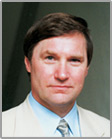
John D. Barrow Professor of Mathematical Sciences, John D. Barrow, FRS, is Professor of Mathematical Sciences at the University of Cambridge and Director of the Millennium Mathematics Project, a programme to improve the teaching, learning, and appreciation of mathematics and its applications. He is also the current Gresham Professor of Geometry at Gresham College. More » Cosmic Imagery 
Conrad Wolfram Co-founder and Strategic Director, Conrad Wolfram is strategic director of Wolfram Research as well as its European founder and managing director. A recurring theme of the technical and business directions he leads has been the democratisation of computation through automation and interactivity. More » Moving to the Computational Knowledge Economy Transforming Technical Education for a Computational World 
C. Alan Joyce Content Manager, Wolfram|Alpha C. Alan Joyce is the Content Manager for socioeconomic data in Wolfram|Alpha. He was previously Editorial Director for World Almanac Books and Editor-in-Chief of the #1 bestselling The World Almanac and Book of Facts, and is the former Executive Editor of The New York Times Almanac and The New York Times Guide to Essential Knowledge. Computational Knowledge in Practice: Inside the Wolfram|Alpha Project 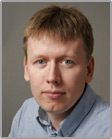
Jon McLoone Director of Business Development, Jon McLoone has worked with Wolfram Research, the makers of Mathematica, since 1992, on software development, system design, technical writing, and strategy. His work has included document processing and conversion technology, and he has worked with several publishers on electronic courseware and interactive content projects. The Future of Interactive Publishing |
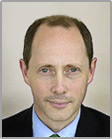
Andrew Dilnot Principal, St Hugh's College, University of Oxford Andrew Dilnot, economist and broadcaster, is Principal of St Hugh's College, Oxford. He was the presenter of BBC Radio 4's series on the beauty of numbers, "More or Less", and presents television documentaries about the economy for Channel 4. He was Director of the Institute for Fiscal Studies from 1991 to 2002. More » Why Statistics Really Matter 
Walter De Brouwer CEO, One Laptop per Child, Europe Walter De Brouwer is a computational linguist who was involved in two European IPOs: EUnet (now Qwest Communications) and Stepstone. At present, he is the CEO of the European branch of Nicholas Negroponte's One Laptop per Child. He is a member of the Judge Business School's Centre for Entrepreneurial Learning (University of Cambridge). The Meaning of Life Is a Number 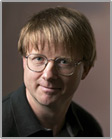
Tom Wickham-Jones Director of Kernel Technology, Tom Wickham-Jones has worked for Wolfram Research on the implementation of Mathematica since 1990. He is currently the Director of Kernel Technology. He has worked on many details of the Mathematica programming language, as well as other areas such as graphics. More » Democratising Knowledge across the Enterprise 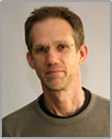
Chris Carlson Graphics Developer, Wolfram Research Chris Carlson started his computer graphics career developing molecular graphics applications at the Max Planck and European Molecular Biology laboratories in Germany. After a brief stint at the Research Institute for Symbolic Computation in Austria, where he taught logic programming and collaborated on art and technology projects, he joined the User Interfaces group at Wolfram Research as an interactive graphics developer. More » Adventures in Computation: How I Wrinkled Norman Foster's Gherkin |